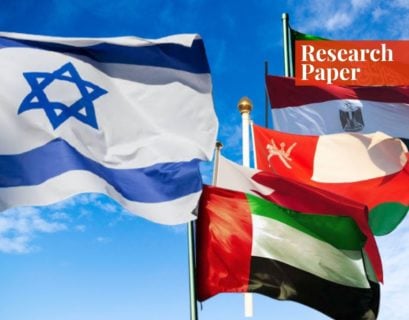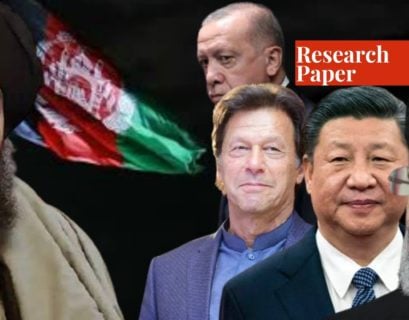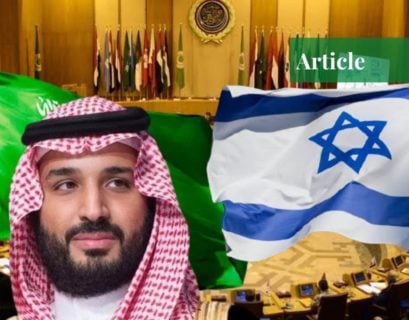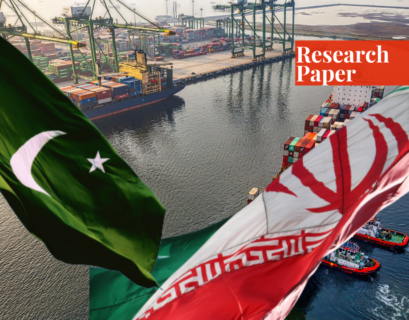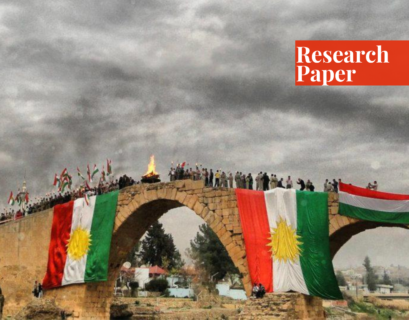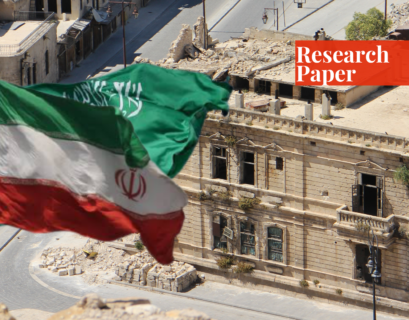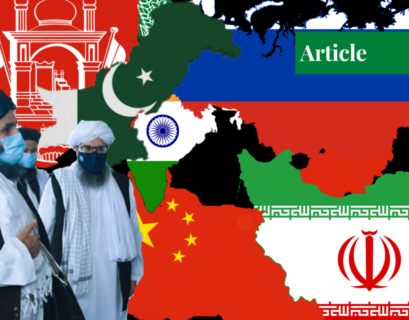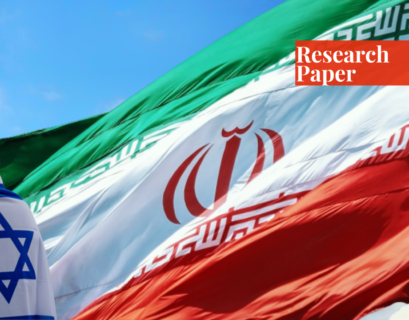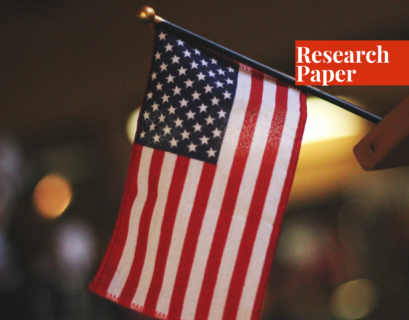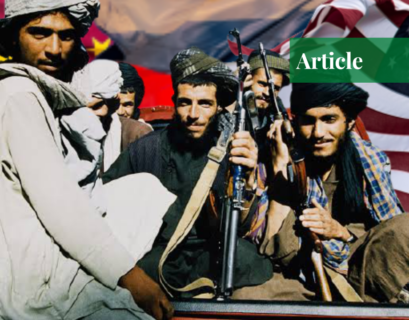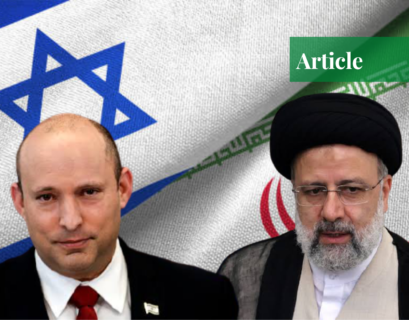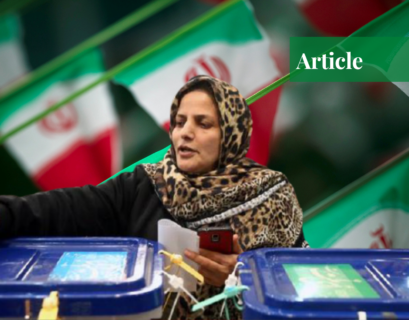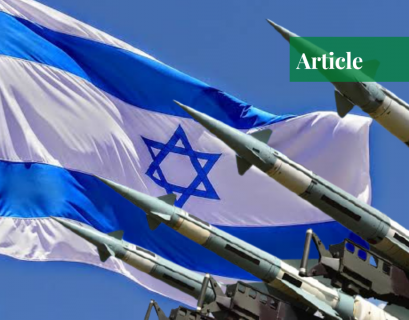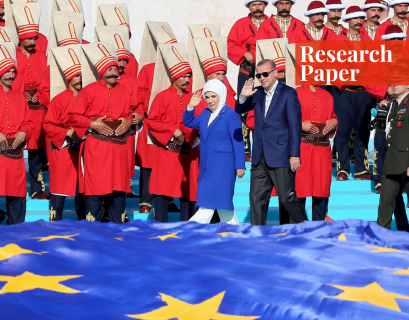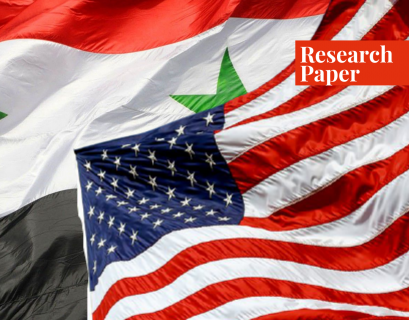Iran: A Common Enemy of Israel and the Arab Countries
The relations of the Arab states, namely Saudi Arabia, the UAE, Bahrain, Egypt, and Oman, with Israel have always been based upon what they perceive as a threat and what benefits them. The authors, Rubab Nawaz and Kanza Tahir, explain that initially, these Arab states viewed Israel as the enemy but now, they’ve started to align themselves with it to counter the threat of a Shi’ite and nuclear Iran. This threat has been securitized to gain legitimacy from the masses. For the sake of this Arab-Israel alliance, the Gulf states seem to have sidelined the issue of Palestine.
A Peaceful Afghanistan: The Interest of Pakistan, China, & the Region
Over the years, the state of Afghanistan has experienced terrorism, drug trafficking, human rights abuse, political turmoil, geostrategic and geo-economic tussle, and societal deterioration. The instability in the state has impacted Pakistan, China, Iran, Turkey, and the Central Asian Republics as well. The authors, Muhammad Saad, Eman Anjum, Jizza Babar, and M. Shaheer Khattak, note that for their own interests, these regional states seek a peaceful Afghanistan, the establishment of which is not an easy task. For this reason, they have made efforts to stabilize and develop the war-torn state.
Will Saudi Arabia and Israel Normalize Relations?: Understanding the Arab Peace Initiative
On the condition that Israel will implement the 2002 Arab Peace Initiative, Saudi Arabia has expressed its willingness to improve its relations with Israel. The initiative proposes a two-state solution for the Palestine issue and an end to the Israeli illegal annexation of the territories of the West Bank and Gaza Strip. The author, Muhammad Hamza Tanvir, notes that although an alliance between the Kingdom of Saudi Arabia and Israel would be beneficial for them, the condition imposed by the kingdom is not pragmatic for Israel, even more so after the change in its leadership.
The Iranian Nuclear Deal: What Has Changed During Biden’s Term?
The Joint Comprehensive Plan of Action (JCPOA) – a deal to limit Iran’s nuclear capability – fell apart after the former US president, Donald Trump, pulled the US out of the deal in 2018 and imposed sanctions on Iran. The author, Habiba Ali, notes that although the Biden administration is well aware of the importance of such an agreement with Iran, the latter has made it clear that without an end to the sanctions on it, the JCPOA cannot be reinitiated. Furthermore, despite the two states’ interest in restoring the deal, the 2021 negotiations in Vienna and Tehran have failed to revive it.
The Gwadar Port of Pakistan vs the Chabahar Port of Iran: Analyzing the Changing Dynamics
China has exhibited a deep interest in developing the Gwadar Port of Pakistan, under the China–Pakistan Economic Corridor (CPEC), for the enhancement of its strategic and economic benefits, while India is investing in the Chabahar Port under the tripartite Preferential Trade Agreement (PTA) with Iran and Afghanistan, with the drive to counter China’s growing presence in the region.
Both ports are situated at the international energy trading route and provide connectivity to different regions of the world including Central Asia, the Middle East, Africa and Europe. Such equalizing behavior of both states is not just causing problems for them but also for the neighboring states such as Afghanistan, Iran, and Pakistan, in this regard, which are the key stakeholders in the construction of these ports.
The authors, Ms. Kinza Shah and Mehwish Kayani, look into the geostrategic and geo-economic importance of both ports. This paper also explores the stances given by the major states of the …
The Kurdish Region: From Great Dynasties to Stateless Nation
The dissolution of empires and the formation of new nation-states after the two world wars divided the Kurdish region and population into four states—Iran, Iraq, Syria, and Turkey. For decades, the Kurdish people have been subjected to persecution, discrimination, assimilation, and repression in these states. Unlike the Kurds of Iraq, the Kurds of Syria, Iran, and Turkey do not have their own autonomous regions. The author argues that this can be contributed to the fact that the Kurdish people have long forgotten their true objective and have assumed the role of pawns for the very states that once abandoned them.
The Civil War in Syria: The Role of Iran and Saudi Arabia
In the quest to become the regional hegemon, Iran and Saudi Arabia have backed governments, militias, and organizations based on sectarian lines in the Middle East. While Tehran is financially and militarily supporting the Assad regime and Hezbollah in Syria, Riyadh has resorted to backing the Syrian rebels and jihadist groups, like the Army of Islam, Jaish al-Fatah, and Ahrar al-Sham, against the regime. The author argues that the proxy war in Syria, while only a battle for supremacy for Iran and Saudi Arabia, has devastated the Syrians and turned the state into a haven for extremist groups.
The Taliban Government in Afghanistan: Implications for Pakistan, China, India, Russia & Iran
The conclusion of the war in Afghanistan played out in the Taliban’s favour. With the Taliban now in power and forming the government, their alliances, which the author noted in his previous piece, will rearrange the geopolitical landscape of the region while also determining the fate of the global powers. Featured image credits: Ministry of Foreign Affairs, Pakistan
Iran-Israel Relations & Russia’s Mediation Diplomacy
The research paper focuses primarily on the different phases of diplomatic relations between Iran and Israel – two strategic states of the Middle East.
The author highlights the strategic role of Russia as a mediator between the two states to show how in order to pursue their national interests, states play out their part in international politics with direct bearing on other states at the national and international level.
US Interests in the Middle East: Foreign Policy Objectives & Failures
To incorporate the Middle East in its sphere of influence, the United States has either directly or indirectly intervened in the Middle East. The author notes that America’s foreign policy in the Middle East included meddling in the political affairs of many countries in the region, and installing and assisting in radicalization and sectarianism just for its own geostrategic and economic interests. This approach, along with the Israel-Iran rivalry and the Shia-Sunni rivalry between Saudi Arabia and Iran, has prevented peace from being established in the region. Ultimately, the Middle East has turned into a battleground for sectarian conflicts, proxy wars, and instability.
How Regional Powers Are Strengthening Relations with the Taliban
With a looming civil war and he Taliban’s growing control in Afghanistan, the author examines the interactions between the Taliban and many powerful nation states.
The Taliban’s alliance will China and Russia, among others, would signal a threat to the US’s hegemony and India’s influence in the region.
The US’s Assassination of General Qasem Soleimani: Causes, Impacts, and Legality
On 3rd January 2020, the United States killed top Iranian general Qasem Soleimani. The assassination of Soleimani is attributed to the historic rivalry between Iran and the US, the US agenda to lower the influence of Iran in the region, and Trump’s aggressive and dominant personality.
His assassination has a huge impact not only on the politics and relations between Iran and the US but also in the region. This research paper seeks to find the reason for the US’s assassination of Qasem Soleimani.
Ebrahim Raisi vs Naftali Bennett: The Rise of Conservative Leaders in Israel and Iran
The rise of Naftali Bennett as the prime minister of Israel has increased the possibility of the situation in Palestine worsening. The Israeli prime minister has not only openly supported violence against the Palestinians (and all Arabs), but also made it clear that he’s against the two-state solution to end the conflict. Furthermore, the election of Ebrahim Raisi (a hardliner) as the president of Iran will take tensions between Israel and Iran to new heights. The author asserts that the election of these leaders might also directly impact Iran’s economy, and the revival of the Joint Comprehensive Plan of Action (JCPOA)
An Insight into the 2021 Presidential Elections in Iran
The 2021 presidential elections of Iran are scheduled to take place this week on 18th June. Many wonder about any impact that these elections may have, considering that the Supreme Leader is always at the helm of the state. However, with the ongoing pandemic and a debilitating economy, the President has to create and ultimately present the plan of action to the Supreme Leader for approval.
A JCPOA for the Growing Israeli Nuclear Weapons Program
Israel is a nation involved in uranium enrichment programs – just like Iran. While these programs are not acknowledged by the Israeli government, expert opinions confirming these statements are available. The author argues for a framework (like the Joint Comprehensive Plan of Action i.e. the Iran nuclear deal) for Israel’s quietly escalating nuclear projects.
Eurasianism vs. Neo-Ottomanism in the Turkish Foreign Policy
Turkey, formerly the Ottoman Empire, is said to have a foreign policy dictated by neo-Ottomanism, mainly by those who support the West. The author argues that neo-Ottomanism is incompatible with Turkey’s current foreign policies, and instead cites Eurasianism as the idea behind Turkey’s foreign policies.
The US Intervention in Syria: Complications or Resolutions?
A minor conflict that arose in 2011 turned Syria into a battleground of a full-fledged civil war within a few years involving the regional and major powers. This research paper will unfold in a sequence of explanations of the factors that contributed to the surge of a conflict and what interested the United States to intervene. Moreover, the diplomatic activities that took place and how Russia, Iran, and Turkey contributed are discussed.
